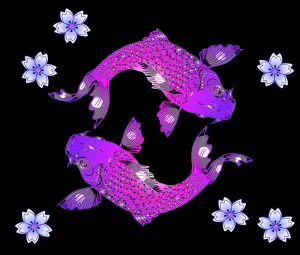Best French Movies to Fall in Love With

The Intouchables
"The Intouchables" (2011) is a heartwarming and hilarious buddy comedy that became a global phenomenon. This critically acclaimed film tells the story of an unlikely friendship between Philippe, a wealthy quadriplegic man, and Driss, a young man from the projects hired to be his caregiver. With its charming performances from François Cluzet and Omar Sy, "The Intouchables" transcends cultural barriers to deliver a universal message about friendship, compassion, and the importance of human connection. Its success at the box office solidified its place as one of the most beloved French films of all time.
Amélie
Amélie (released in France as Le Fabuleux Destin d'Amélie Poulain) is a whimsical and enchanting romantic comedy that has become a modern classic of French cinema. Directed by Jean-Pierre Jeunet, the film stars Audrey Tautou as Amélie, a quirky and imaginative young woman living in Montmartre, Paris. Feeling different from others, Amélie embarks on a quest to spread joy and happiness in the lives of those around her, all while navigating her own journey of self-discovery and love.
The film's whimsical tone, vibrant visuals, and charming characters captivated audiences worldwide. Amélie's whimsical charm and the film's celebration of the extraordinary in the ordinary resonated with viewers, making it a global phenomenon. The film's success can be attributed to its unique blend of humor, romance, and a touch of magical realism. Amélie is a testament to the power of French cinema to create films that are both visually stunning and emotionally resonant. It remains a beloved classic and a must-see for anyone looking for a heartwarming and unforgettable cinematic experience.
Portrait of a Lady on Fire
"Portrait of a Lady on Fire" is not just a great French film, it's a masterpiece that transcends borders. This period drama, directed by Céline Sciamma, tells the story of a forbidden love between an aristocrat and the painter commissioned to create her portrait. The film is a slow burn, but its beauty lies in the subtle glances, the unspoken words, and the palpable tension between the two leads.
The film's success at Cannes, where it won the award for Best Screenplay, cemented its place among the best films produced in France. It's a testament to the power of French cinema, which has always been known for its artistry, emotional depth, and exploration of complex themes. From the classics like "The 400 Blows" and "Breathless" to modern masterpieces like "Amélie" and "Intouchables," French cinema continues to captivate audiences worldwide. "Portrait of a Lady on Fire" is a worthy addition to this legacy, a film that will stay with you long after the credits roll.
La Haine
"La Haine" (Hate), Mathieu Kassovitz's 1995 masterpiece, is not just one of the best French films ever made, it's a cinematic gut punch that transcends borders and languages. This black-and-white masterpiece, a raw and unflinching look at social unrest and police brutality in the Parisian suburbs, is as relevant today as it was upon its release. The film follows three young friends, Vinz, Hubert, and Saïd, over 24 hours in the aftermath of a riot. Kassovitz masterfully captures the simmering tension, frustration, and despair of marginalized communities, offering a searing indictment of social inequality and its consequences. The film's raw energy, unforgettable characters, and powerful message earned it critical acclaim, including the Best Director award for Kassovitz at the 1995 Cannes Film Festival. "La Haine" is not just a film, it's an experience, a stark reminder of the injustices that continue to plague our world. It's a must-watch for anyone who wants to understand the complexities of social issues and the power of cinema to spark dialogue and inspire change.
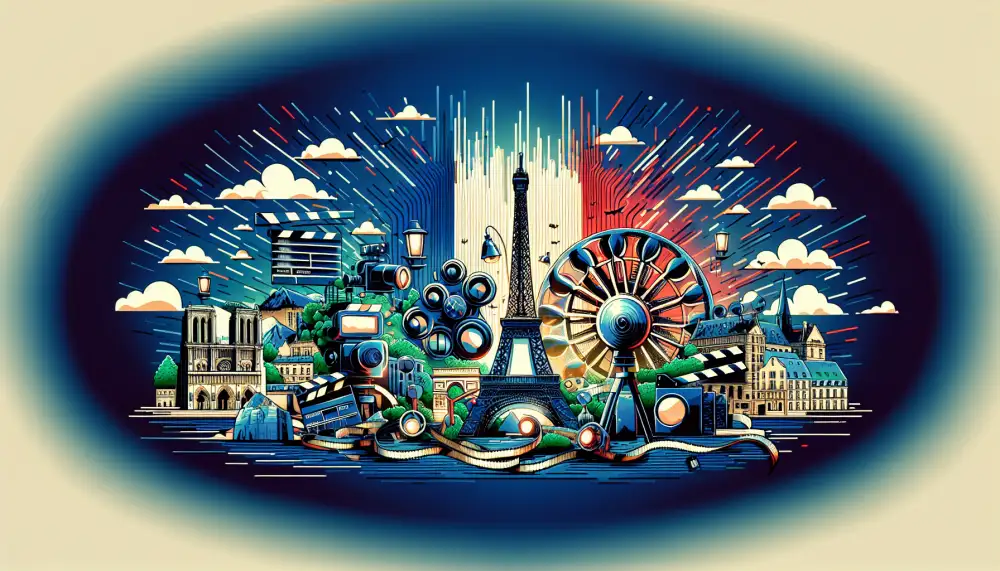
The Umbrellas of Cherbourg
"The Umbrellas of Cherbourg" (1964) is a landmark film in French cinema, renowned for its bold use of color, unforgettable music by Michel Legrand, and heart-wrenching love story. Directed by Jacques Demy, the film tells the tale of Geneviève (Catherine Deneuve), a young woman who falls in love with Guy (Nino Castelnuovo), a mechanic. Their romance is interrupted when Guy is drafted to fight in the Algerian War.
This cinematic masterpiece is considered one of the greatest musicals ever made and a defining work of the French New Wave movement. Its innovative storytelling, entirely sung through with dialogue delivered in recitative, broke new ground in filmmaking. The film's impact on cinema is undeniable, influencing generations of filmmakers with its vibrant visuals and emotionally resonant narrative.
Breathless
“Breathless” (À bout de souffle) is not just a film; it’s a cinematic revolution. Released in 1960, this Jean-Luc Godard masterpiece redefined French cinema and influenced filmmaking globally. This iconic work, shot on a shoestring budget with handheld cameras and natural lighting, broke all the rules. Jump cuts, handheld camerawork, and an improvisational feel gave it a raw, documentary-like style that was utterly unconventional for its time. The story follows a small-time criminal, Michel, played with charismatic nonchalance by Jean-Paul Belmondo, who models himself after Humphrey Bogart. After stealing a car, he kills a policeman and goes on the run with his American girlfriend, Patricia, played by the captivating Jean Seberg. “Breathless” is a stylish and self-aware exploration of love, crime, and existentialism. Its impact on the French New Wave movement is undeniable, paving the way for a new generation of filmmakers who challenged conventions and redefined cinematic language. Even today, “Breathless” remains a touchstone of French cinema, a testament to the power of innovation and a timeless portrayal of youthful rebellion and romantic fatalism.

Hiroshima Mon Amour
Alain Resnais's Hiroshima Mon Amour (1959) is one of the most influential French films ever made. It's a haunting and poetic meditation on love, loss, and the shadow of war. The film tells the story of a brief but intense affair between a French actress (Emmanuelle Riva) and a Japanese architect (Eiji Okada) in Hiroshima, several years after the atomic bombing. Their encounter brings back painful memories for both of them. The film is notable for its innovative use of flashbacks and its exploration of the themes of memory and trauma. Hiroshima Mon Amour is a powerful and moving film that has had a lasting impact on cinema. It is widely considered to be one of the greatest films ever made. The film won the FIPRESCI Prize at the 1959 Cannes Film Festival and was nominated for an Academy Award for Best Original Screenplay. It is a must-see for anyone interested in French cinema or the history of film.
Cleo from 5 to 7
Agnès Varda's groundbreaking 1962 film "Cléo from 5 to 7" consistently earns its place on lists of the best French movies ever made. This captivating work of the French New Wave follows a young singer, Cléo, during a nerve-wracking wait for potentially life-altering medical test results. The film unfolds in almost real-time, immersing the viewer in Cléo's emotional journey as she navigates the streets of Paris. Varda masterfully utilizes handheld camerawork and natural lighting, techniques characteristic of the French New Wave, to create a sense of immediacy and realism.
| Movie Title | Director | Year | Genre | Awards |
|---|---|---|---|---|
| Amélie (Le fabuleux destin d'Amélie Poulain) | Jean-Pierre Jeunet | 2001 | Romantic Comedy | 5 César Awards, 2 BAFTA Awards, Nominated for 5 Oscars |
| The Intouchables (Intouchables) | Olivier Nakache & Éric Toledano | 2011 | Comedy-Drama | 9 César Award Nominations |
Beyond its technical innovations, "Cléo from 5 to 7" is celebrated for its thematic depth. Varda explores themes of mortality, femininity, and self-discovery with nuance and sensitivity. The film's ending, often praised for its ambiguity, continues to spark debate and discussion among cinephiles, solidifying its status as a timeless masterpiece of French cinema. It's a must-watch for anyone interested in exploring the rich history of French filmmaking and its impact on global cinema.
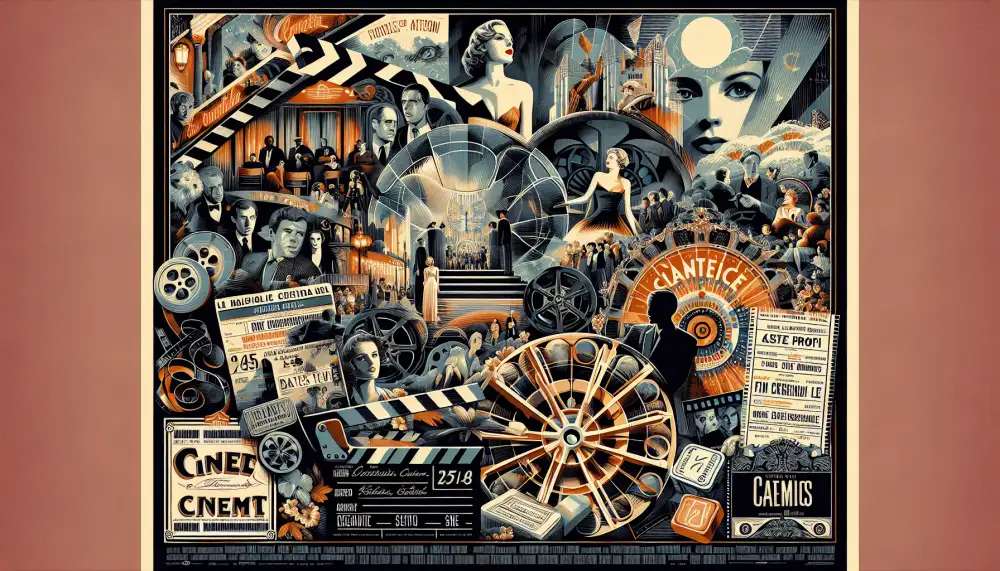
The 400 Blows
François Truffaut's groundbreaking 1959 film, "The 400 Blows" ("Les Quatre Cents Coups" in French), consistently ranks among the best French movies and a landmark of the French New Wave movement. This poignant coming-of-age story follows the life of young Antoine Doinel, played with stunning authenticity by Jean-Pierre Léaud, as he navigates the trials and tribulations of childhood in 1950s Paris. Truffaut's masterful direction, combined with Léaud's raw and vulnerable performance, creates a deeply affecting portrait of adolescence, capturing the confusion, rebellion, and yearning for freedom that marks this transitional phase. The film's innovative use of handheld camerawork, jump cuts, and natural lighting broke away from traditional filmmaking conventions, ushering in a new era of French cinema. "The 400 Blows" is not only a cinematic masterpiece but also a poignant exploration of societal expectations, familial relationships, and the universal struggles of growing up. Its enduring legacy continues to inspire and resonate with audiences worldwide, solidifying its place as a cornerstone of French and international cinema.
Jules and Jim
François Truffaut's masterpiece Jules and Jim (1962) is a cornerstone of the French New Wave movement. This innovative and emotionally resonant film tells the story of a love triangle between two friends, Jules (Oskar Werner) and Jim (Henri Serre), and the captivating Catherine (Jeanne Moreau). Set in pre-World War I Paris and Austria, the film explores themes of love, friendship, jealousy, and the fleeting nature of happiness. Truffaut's masterful direction, combined with the iconic performances of its leads, makes Jules and Jim a timeless classic. The film's innovative editing techniques, use of jump cuts and freeze frames, and its memorable soundtrack by Georges Delerue, all contribute to its enduring legacy as one of the best French films ever made.
Pierrot le Fou
Jean-Luc Godard's 1965 masterpiece, "Pierrot le Fou," stands as a vibrant testament to the French New Wave movement and its enduring influence on cinema. This visually stunning and emotionally charged film follows the impulsive Ferdinand, who adopts the nickname Pierrot, as he abandons his bourgeois life in Paris to embark on a chaotic journey across France with his former lover, Marianne.
The film pulsates with Godard's signature stylistic flourishes: jump cuts, vibrant colors, and a playful disregard for traditional narrative conventions. "Pierrot le Fou" is a cinematic poem that explores themes of love, alienation, and the elusive search for freedom. It's a wild ride through the French countryside, soundtracked by a jazzy score, and punctuated by moments of both absurd humor and profound melancholy.
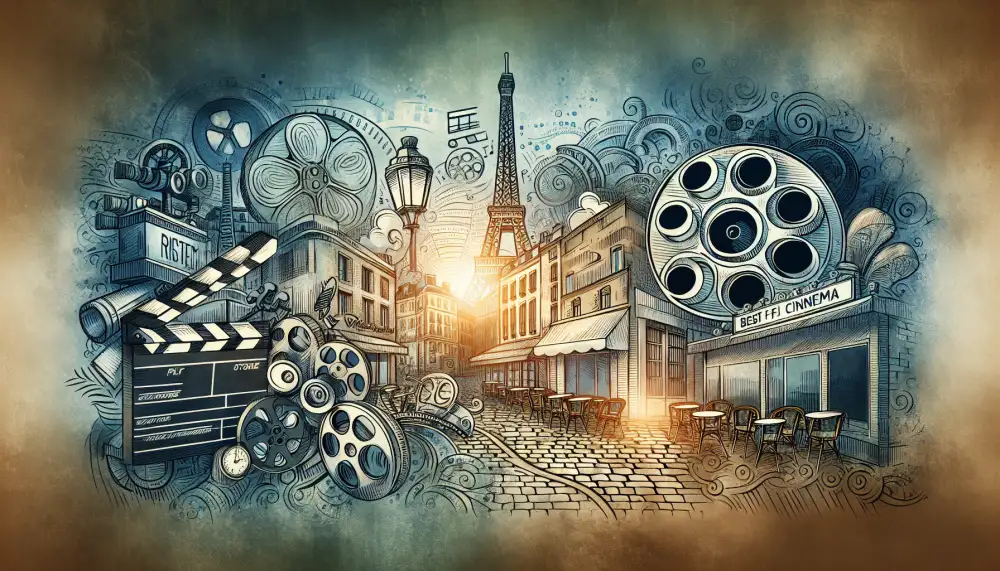
"Pierrot le Fou" is not just a visually arresting film; it's also a thought-provoking exploration of existential themes. Godard uses the characters' journey as a metaphor for the search for meaning and identity in a world that often feels absurd and alienating. The film's enduring legacy lies in its ability to be both entertaining and intellectually stimulating, cementing its place among the best French movies ever made.
Cache
France, a country synonymous with cinematic excellence, boasts a rich history of producing some of the world's most celebrated films. From the poetic realism of the New Wave to the thought-provoking narratives of contemporary auteurs, French cinema continues to captivate and inspire audiences worldwide.
Determining the "best" French films is inherently subjective, as taste varies widely. However, certain films have consistently earned critical acclaim and left an indelible mark on cinematic history. These masterpieces often explore complex themes with artistic flair, showcasing the depth and diversity of French filmmaking.
Some of the most renowned French films include:
- "The 400 Blows" (1959), directed by François Truffaut, is a poignant coming-of-age story that helped usher in the French New Wave movement.
- "Breathless" (1960), directed by Jean-Luc Godard, is another New Wave landmark, known for its innovative editing and unconventional storytelling.
- "Hiroshima Mon Amour" (1959), directed by Alain Resnais, is a haunting and poetic meditation on love, loss, and the aftermath of war.
- "Jules and Jim" (1962), directed by François Truffaut, is a charming and bittersweet tale of a love triangle between two friends and a free-spirited woman.
- "Pierrot le Fou" (1965), directed by Jean-Luc Godard, is a visually stunning and genre-bending crime drama that further cemented Godard's status as a cinematic iconoclast.
- "Amélie" (2001), directed by Jean-Pierre Jeunet, is a whimsical and visually enchanting romantic comedy that became a global phenomenon.
- "The Intouchables" (2011), directed by Olivier Nakache and Éric Toledano, is a heartwarming and inspiring comedy-drama that explores themes of friendship, empathy, and the human spirit.
These films represent just a small sampling of the many cinematic treasures that France has to offer. From groundbreaking classics to modern masterpieces, French cinema continues to push the boundaries of storytelling and leave an unforgettable mark on the world of film.
Amour
French cinema, with its poetic sensibility and penchant for exploring the complexities of human relationships, has gifted the world with numerous cinematic gems that delve into the profound depths of love. "Amour," directed by the acclaimed Austrian filmmaker Michael Haneke, though not strictly a French production, deserves a special mention in this context. This poignant and unflinching masterpiece, while a co-production between Austria, France, and Germany, premiered at the Cannes Film Festival and went on to win the prestigious Palme d'Or. "Amour" transcends cultural boundaries with its universal portrayal of love, aging, and the challenges faced by long-term couples in the face of declining health. The film's raw honesty and emotional depth resonated deeply with audiences worldwide, earning it widespread critical acclaim and the Academy Award for Best Foreign Language Film. While "Amour" might have been a collaborative effort, its impact on the cinematic landscape and its exploration of love's enduring power solidify its place in any discussion about the best of French cinema.
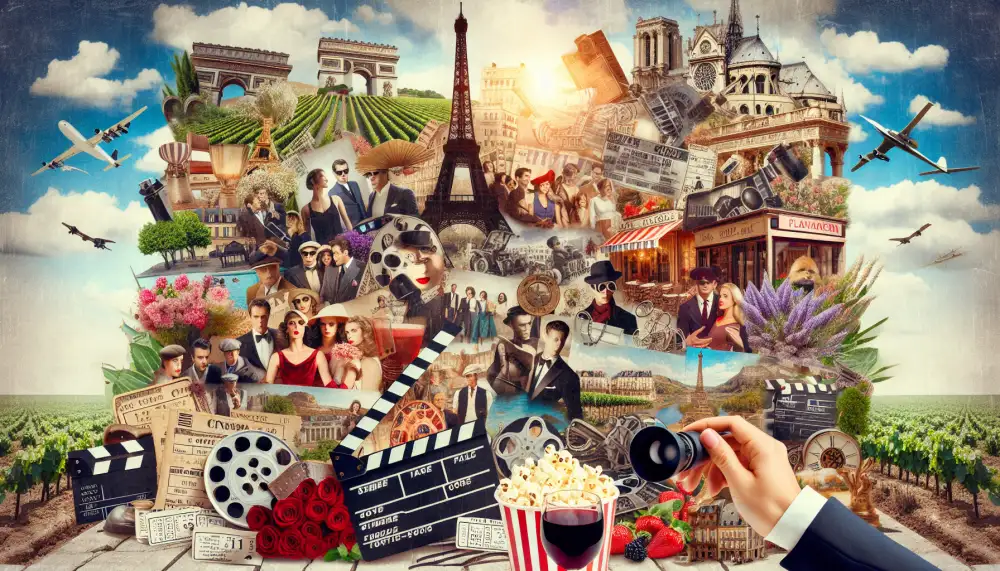
Diva
The term "diva" evokes images of powerful, glamorous women who command attention. In the world of French cinema, this term takes on a particularly resonant meaning. French cinema has a long and storied history of celebrating strong, independent female characters, and the "diva" archetype has been a constant presence. These are not merely beautiful faces on screen; they are complex, often flawed individuals who navigate love, loss, ambition, and societal expectations with a captivating blend of vulnerability and strength.
Think of Catherine Deneuve, whose icy beauty and enigmatic aura made her an icon in films like "Belle de Jour" and "Repulsion." Or Isabelle Huppert, a chameleon-like actress who embodies her characters with such raw intensity that she disappears into roles in films like "The Piano Teacher" and "Elle." These women, and many others like them, represent a particular kind of French cinematic heroine: intelligent, independent, and unafraid to challenge conventions. They are not afraid to be sensual, to be demanding, and to pursue their desires.
The "diva" in French film is not just a symbol of glamour; she is a reflection of French society's evolving views on womanhood. She is a testament to the enduring power of female narratives in cinema and a reminder that true strength lies in embracing one's complexity.
Tell No One
“Tell No One” is a gripping French thriller from 2006 directed by Guillaume Canet. Based on the novel by Harlan Coben, the film keeps you on the edge of your seat with its twists and turns. The story follows Alex, a pediatrician haunted by the unsolved murder of his wife eight years prior. When Alex receives a cryptic email suggesting his wife might still be alive, he’s pulled into a dangerous web of secrets and conspiracies. The film was a critical and commercial success, praised for its suspenseful plot, stylish direction, and strong performances from François Cluzet as Alex and Kristin Scott Thomas as his friend, Hélène. “Tell No One” showcases the excellence of French filmmaking, proving that they know how to deliver a top-notch thriller that resonates with audiences worldwide.
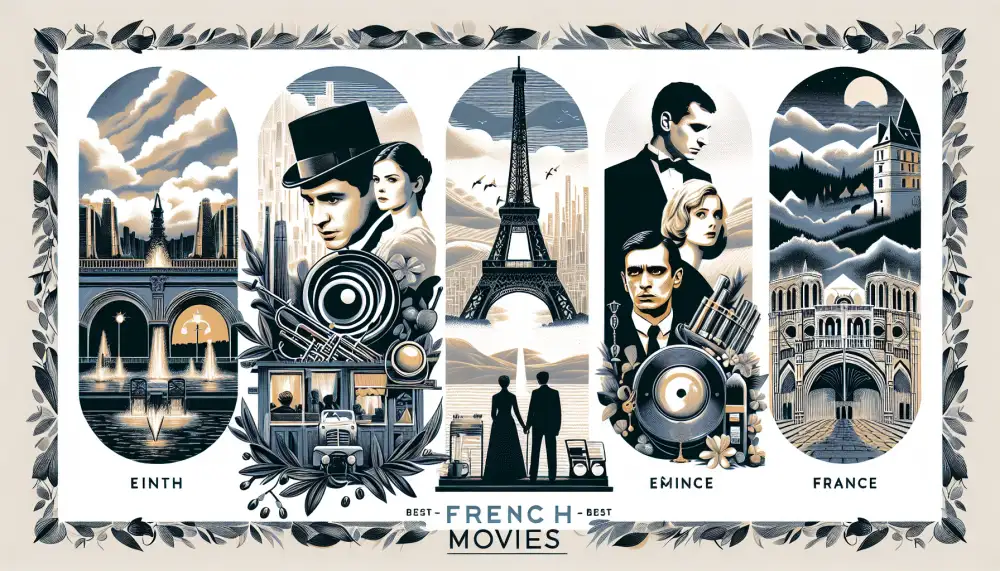
Published: 01. 07. 2024
Category: Movies


